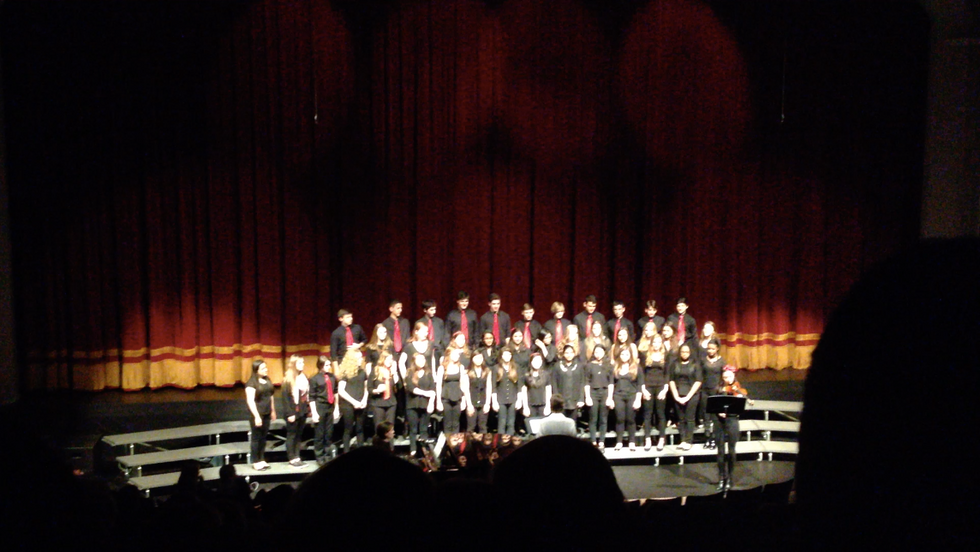As someone who has always loved music, Broadway musicals, and creating songs, I truly believe that the power of music extends beyond all else. Music is a constant: always there when you need it, no matter what mood you are in. People listen to music when they are distraught and want to be uplifted, when they are working out and need motivation, or when they are simply content with the desire to feel understood. Music does just that — it acts like someone who can listen, but also relate to you-someone who acknowledges your feelings but also someone who offers a new perspective.
For as long as I can remember, music has been an essential part of my life. When I was little, I would sing in my free time, creating nonsensical melodies with meaningless lyrics. Then I began to sing in school, and it was in that community that I found a completely new side of music's ability to connect. I sang in a choir from the third through the eighth grade, but when I began high school, I did not participate in a choir or any musical group. It was in that decision, or rather indecision, that I realized how much music impacted my life. Before I knew it, I was desperate to audition for my high school's advanced choir. During my sophomore year, I became a part of a group that did not just sing to fulfill a requirement for the arts. These students were taking this elective course in the early hours of the morning before school out of a mere love for music and singing.
To most, it might seem absurd: why wake up an hour earlier and get to school almost a full hour before it started to sing in a choir that in no way fulfilled a requirement? But a love of music is something that can only be understood in a situation where you are deprived of it. For me, it was my freshman year of high school when I had no outlet to create and perform with my peers.
To this day, nothing will ever compete with the inexplicable joy that I felt when singing in my choir. Each song we performed as a group was so heartfelt and close to our hearts. There was no drive to win any contest, and neither was there a lack of enthusiasm that one would expect to find in a high school basement at 7 in the morning. Instead, our motivation was intrinsic — it was within us, stemmed by a passion for music and in turn, being with and working with those who felt the same.
Music has such a strong influence on me, as it does for many. Beyond the ways that it unites people, such as how it brought my choir close to the many exchange students who visited from Germany and Spain, music also has the power to heal. Music transcends time, location, language, and even disability. In the hospital that I have volunteered at, musicians are invited to perform for the patients. For older patients with fading memory, music has the power to overcome any confusion or fear. In this sense, music has advanced treatment in a way that science never could for its patients.
This is why we turn to music — to fill the silence, and act as a source of comfort. To comfort us in times of struggle and pain, and to bring people together in ways that no other means can. Music is omniscient, omnipotent, and above all else, compassionate.






 The minimum wage is not a living wage.
StableDiffusion
The minimum wage is not a living wage.
StableDiffusion
 influential nations
StableDiffusion
influential nations
StableDiffusion











